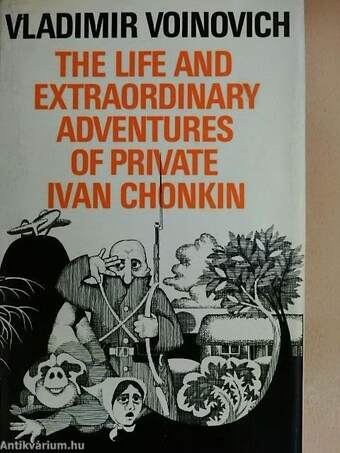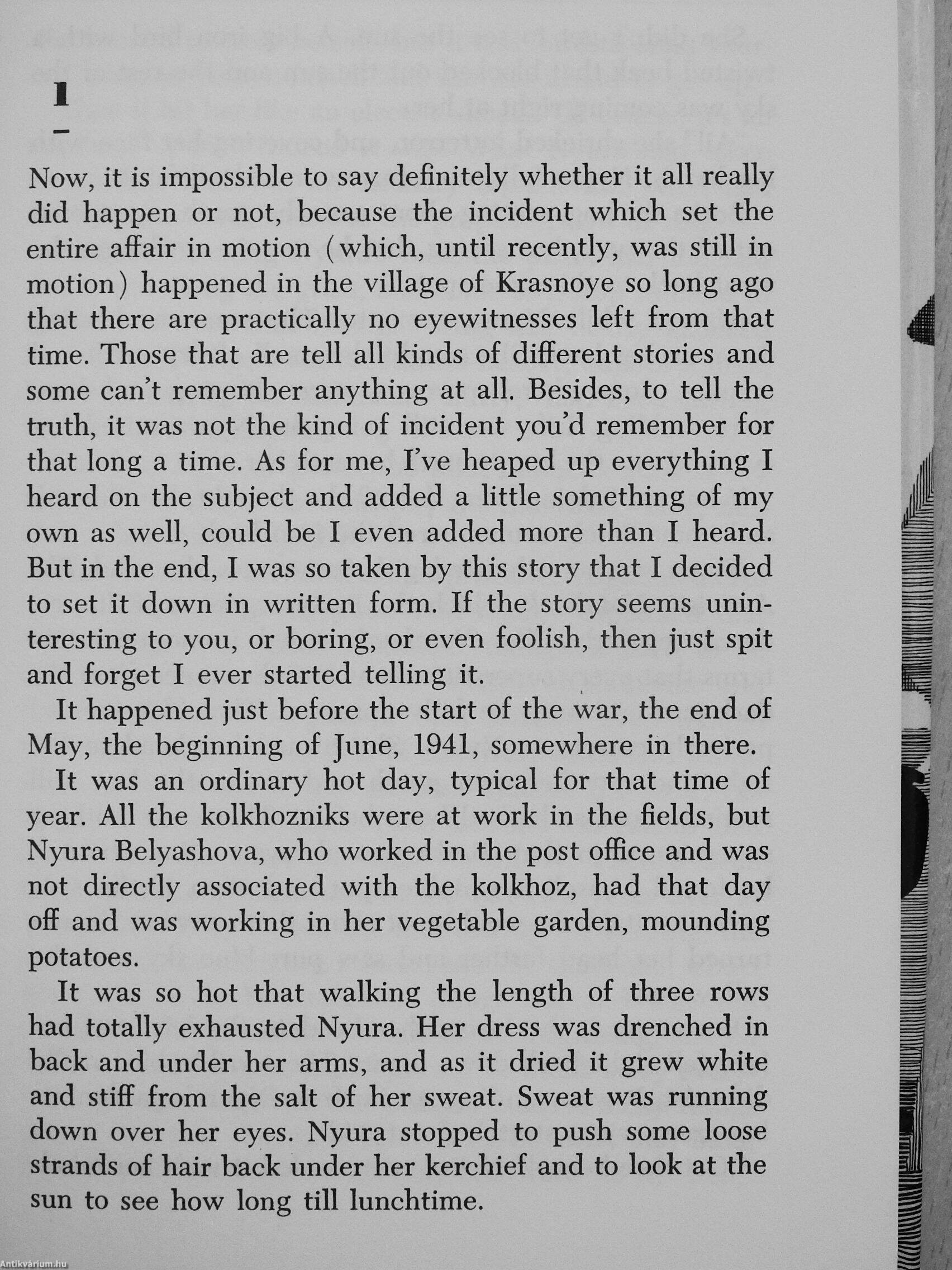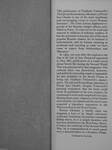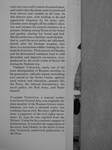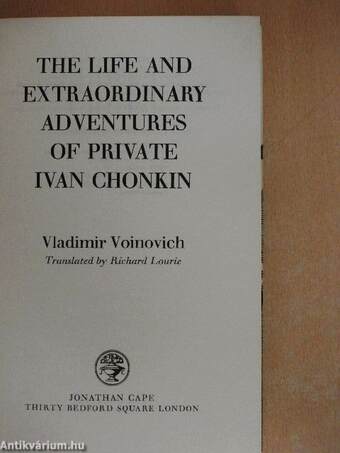1.067.715
kiadvánnyal nyújtjuk Magyarország legnagyobb antikvár könyv-kínálatát

VISSZA
A TETEJÉRE
JAVASLATOKÉszre-
vételek
The Life and Extraordinary Adventures of Private Ivan Chonkin
| Kiadó: | Jonathan Cape Ltd. |
|---|---|
| Kiadás helye: | London |
| Kiadás éve: | |
| Kötés típusa: | Varrott keménykötés |
| Oldalszám: | 315 oldal |
| Sorozatcím: | |
| Kötetszám: | |
| Nyelv: | Angol |
| Méret: | 20 cm x 13 cm |
| ISBN: | 0-224-01385-8 |
naponta értesítjük a beérkező friss
kiadványokról
naponta értesítjük a beérkező friss
kiadványokról
Előszó
TovábbFülszöveg
'The publication of Vladimir Voinovich's The Life and Extraordinary Adventures of Private Ivan Chonkin is one of the most significant and encouraging events in recent Russian literature', The Times Literary Supplement reported of the Russian émigré edition published in Paris. 'It cries out to be read and enjoyed by millions of ordinary readers. It has the potential to become one of the most popular Russian classics, for its humour is international, and its human meaning as profound and touching as what we have come to expect from Solzhenitsyn and Maximov.'
In 1963, one year after the explosive One Day in the Life of Ivan Denisovich appeared in Novy Mir, publication of a comic novel about Soviet life during the Second World War was announced in that magazine. The cultural thaw was short-lived, however, and political censorship made it impossible for any publisher in the Soviet Union to bring out Vladimir Voinovich's masterpiece, The Life and Extraordinary Adventures of Private... Tovább
Fülszöveg
'The publication of Vladimir Voinovich's The Life and Extraordinary Adventures of Private Ivan Chonkin is one of the most significant and encouraging events in recent Russian literature', The Times Literary Supplement reported of the Russian émigré edition published in Paris. 'It cries out to be read and enjoyed by millions of ordinary readers. It has the potential to become one of the most popular Russian classics, for its humour is international, and its human meaning as profound and touching as what we have come to expect from Solzhenitsyn and Maximov.'
In 1963, one year after the explosive One Day in the Life of Ivan Denisovich appeared in Novy Mir, publication of a comic novel about Soviet life during the Second World War was announced in that magazine. The cultural thaw was short-lived, however, and political censorship made it impossible for any publisher in the Soviet Union to bring out Vladimir Voinovich's masterpiece, The Life and Extraordinary Adventures of Private Ivan Chonkin. Despite Voinovich's growing realization that his book could never be published in his own country, he continued to write and completed it in 1970. During those years, chapters oilvan Chonkin were secretly circulated and the novel soon acquired a legendary reputation in the West as well as in the Soviet Union.
Private Chonkin is hardly what one imagines a hero to be. Small, red-eared, awkward, bumbling, his puttees constantly falling down, he is a simple farmboy who has been drafted into the Red Army. Shortly before the outbreak of the Second World War, he is commandeered to stand guard over a downed plane in a forsaken village. Continued on back flap
with only one week's ration of canned meat, and orders that the plane must be protected from thieves and vandals at all costs. In this obscure spot, with nothing to do and apparently forgotten by his army unit, Chonkin soon sloughs off his soldier's identity and resumes his natural existence as a peasant, helping young Nyura in her house and garden, sharing her bread and bed. His life settles into a familiar rural rhythm -that is, until the secret police are informed, shortly after the German invasion, that there is a mysterious soldier lurking far behind the front line. Their pursuit of Chonkin and his determined resistance lead to wild skirmishes and slapstick encounters, overshadowed by the awful truths of Soviet life during the Stalinist era.
Vladimir Voinovich, surely one of the most distinguished of Russian novelists in his generation, ridicules almost everything ever sacred in the Soviet Union: agricultural reform and education, peasant life, the Party, the infernal bureaucracy, the secret police, the Red Army, and Stalin himself.
Vladimir Voinovich, a manual worker from Soviet Central Asia, was originally the ideal member of the Russian literary establishment, not only a talented writer, but working-class as well. But since 1966 he has been a supporter of the civil rights movement. In 1974 he was expelled from the Writers' Union for his consistent support of Solzhenitsyn. It was after the suppression of his novel, Ivan Chonkin, in the Soviet Union that Voinovich authorized publication in the West. Vissza
Témakörök
- Idegennyelv > Idegennyelvű könyvek > Angol > Szépirodalom > Regény, novella, elbeszélés
- Idegennyelv > Idegennyelvű könyvek > Angol > Szépirodalom > Szórakoztató irodalom > Humor
- Szépirodalom > Regény, novella, elbeszélés > Az író származása szerint > Európa > Orosz Föderáció
- Szépirodalom > Regény, novella, elbeszélés > Tartalom szerint > Földrajzi besorolások > Európa
- Szépirodalom > Regény, novella, elbeszélés > Tartalom szerint > Humor
- Szépirodalom > Regény, novella, elbeszélés > Tartalom szerint > Falvak, tanyák, városok
- Szépirodalom > Regény, novella, elbeszélés > Tartalom szerint > Katonák, határőrök
- Szépirodalom > Regény, novella, elbeszélés > Tartalom szerint > Kor- és társadalomrajz
- Szépirodalom > Szórakoztató irodalom > Humor



